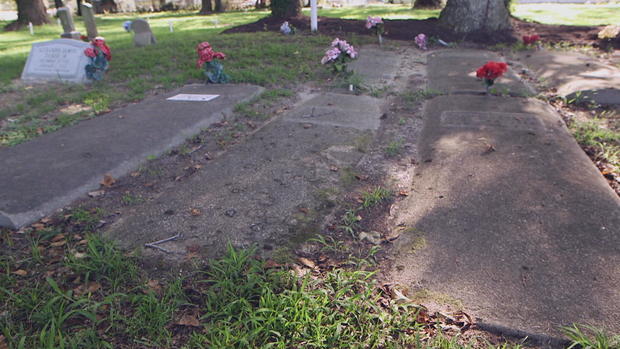It is well documented that four hundred years ago, in 1619, a British ship landed on the shores of Virginia in what was then a British colony.
John Rolfe, the plantation owner and official overseeing the colony noted that the English ship, White Lion, “brought not anything but 20 and odd Negroes”.
Having arrived at Point Comfort on the James River on August 20, 1619, this would mark the beginning of slavery in the American colonies.
Historical accounts had previously believed that these first Africans came from the Caribbean, but later details showed that they came from the kingdom of Ndongo, in present-day Angola.
According to the Hampton History Museum, they were captured there by Portuguese colonists and sent to the port of Luanda on board the slave ship São João Baptista.
The ship, in all, carried about 350 enslaved people and was on its way to Veracruz, in present-day Mexico when it was intercepted by the English ship, the White Lion.
“The British crew robbed part of the Portuguese cargo, including a few dozen African captives – among those who had survived the brutal journey thus far. A few days later, it was at Point Comfort that the British vessel finally landed, in the hopes of trading the enslaved Africans for food and supplies,” according to a report by France 24.
Becoming the first enslaved Africans to have arrived in the British Colony of Virginia, some of the 20 African captives, right after landing on the shores of the colony, were sold in exchange for food and provisions while the rest were transported to Jamestown and sold into slavery.
In 1620, a census showed 17 African women and 15 African men in Jamestown.
Anthony, Isabella, William, and John Pedro were some of the first recorded names who some historians have dubbed the first African Americans.
In 1624, Anthony and Isabella became servants for Captain William Tucker. They lived with him on land located at Elizabeth City, between the Hampton River and Point Comfort.
As documented by hampton.gov, “Capt. Tucker was a burgess and military commander who may have been present when the White Lion or Treasurer were at Point Comfort.”
Around 1623, Anthony and Isabella had a son named William Tucker who “became the first documented African child born in English-occupied North America.”
Even though the date and location of their son’s baptism are not recorded, historians believe everything was held at Elizabeth City’s parish church on the eastern side of the Hampton River near what is today’s Hampton University campus.
The lives of Anthony, Isabella, and their son after 1625 are not known since they disappeared from historical records but some accounts state that they gained their freedom around 1625 and started a homestead in Kent County, Virginia.
Then there is John Pedro. Believed to have been from a prominent family in Kongo or the eastern areas of Ndongo, Pedro was, by 1625, living in Elizabeth City, in the household of Francis West on the east side of the Hampton River.
As hampton.gov writes, “John Pedro, aged 30, arrived on the Swan in 1623 or 1624 and is the only African whose age was recorded in the census. The Swan sailed to Virginia from Massachusetts; Francis West was in Plymouth in 1623 and probably returned to Virginia on the same voyage, bringing John Pedro with him. John Pedro was free by the early 1650s. He briefly owned land in Lancaster, Virginia, before moving to Maryland.”
Believed to be a Catholic before being enslaved, Pedro lost his life due to his involvement with a “Catholic dissident faction.”
“When the English Civil War broke out, it was Protestants versus Catholics,” Calvin Pearson, head of Project 1619 said.
Pedro was then compelled to move to Maryland to live with other Catholics, but he was captured and killed, Pearson added.
There is also the mention of Angelo, an African woman, who lived with William Peirce, a wealthy merchant.
She was called Angelo because per “Portuguese-Angolan naming practices, male and female names could be used interchangeably.”
Essentially, in 1624 and 1625, there were other early Africans in Virginia who were “living at “Warwick Squeake” (Warraskoyak, near present-day Smithfield), Flowerdew Hundred (near present-day Hopewell), and in a cluster of settlements at or near Jamestown.”
Names like Peter, Anthony (who became Anthony Johnson, a prosperous landowner), Francis, and Margrett were also recorded.
In the U.S. today, these Africans have become the ancestors of the majority of the over 40 million African-Americans who have thrived over the years in the face of hurdles such as access to capital to fund and operate businesses due to years of racial and economic discrimination.
This year, one of the activities to mark 400 years since the first African slaves landed in Jamestown started at the Tucker family cemetery, which is believed to be the burial place of some of the descendants of the first enslaved Africans to make the journey.

Members of the Tucker family believe that those graves are the remains of their ancestors, who were among the first enslaved Africans to arrive in 1619.
60-year-old Carolita Jones-Cope said oral history connects her family to Captain William Tucker, whose plantation was a quarter-mile from where the Tucker family cemetery is found today.
“Captain William Tucker was the commander of Point Comfort … and he kept two of those servants, Anthony and Isabella,” Cope was quoted by CBS News. “In 1624, it lists that Anthony and Isabella had a child, William, and that he was born and baptized… That was the start of our family and legacy here in Virginia.”
“…it’s a nice lookin’ family,” Vincent Tucker said of his forebears. “To look at the way that they’re dressed…they walk with their heads up, you know, with pride, dignity.”
“They were smart people. They were strong people. They were hardworking people.” “And that just gives me so much pride, knowing that that’s the stock that I come from.”










